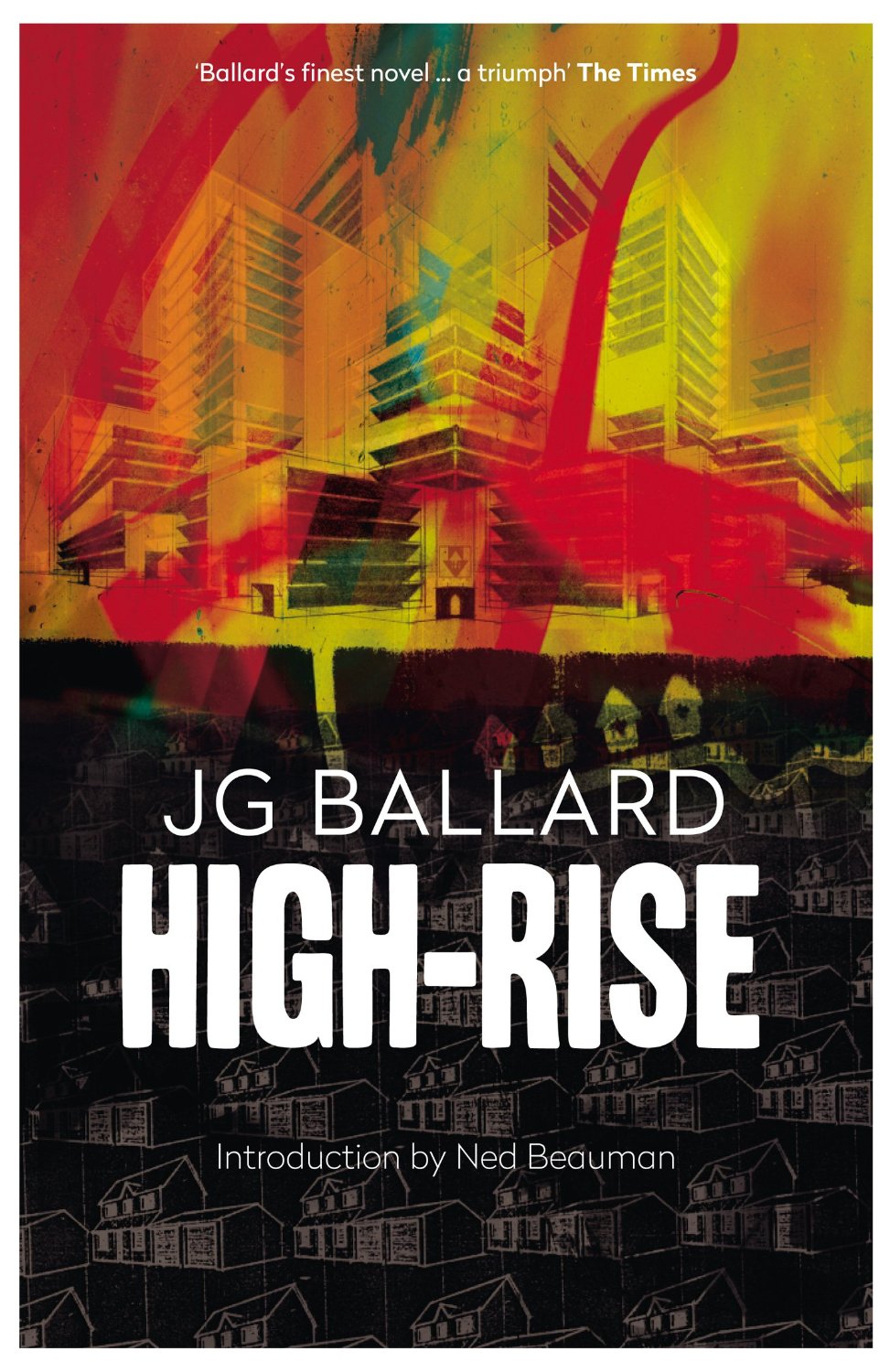Our book group choice for April 2015 is High-Rise by J.G. Ballard. When a class war erupts inside a luxurious apartment block, modern elevators become violent battlegrounds and cocktail parties degenerate into marauding attacks on “enemy” floors.
High-Rise is a 1975 dystopian novel by British writer J.G. Ballard. The story describes the disintegration of a luxury high-rise building as its affluent residents gradually descend into violent chaos. The novel is set in a near-future London, where a new high-rise building has been built on the outskirts of the city. The building is designed to be a self-contained community, with all the amenities its residents could ever need. However, as the residents begin to settle in, they start to exhibit increasingly antisocial behavior. The building becomes divided into social classes, with the residents on the upper floors looking down on those on the lower floors. As the divisions between the classes grow, so does the violence.
The novel follows the story of Robert Laing, a recently divorced doctor who moves into the high-rise on the 25th floor. Laing is initially intrigued by the building and its residents, but he soon becomes disturbed by the increasing levels of violence and chaos. He befriends a group of residents who are also concerned about the building’s descent into madness, but they are unable to stop the violence from escalating.
As the novel progresses, the high-rise becomes increasingly isolated from the outside world. The residents start to see the building as their own little world, and they begin to abandon all pretense of civility. The violence becomes more and more frequent, and the residents eventually descend into anarchy.
The Themes
High-Rise is a complex novel that explores a number of themes, including social class, isolation, and the nature of madness. The novel also examines the effects of the built environment on human behavior. Ballard’s depiction of the high-rise as a microcosm of society is particularly striking. The building’s different floors represent different social classes, and the violence that erupts between the classes is a reflection of the underlying tensions in society as a whole.
The novel’s depiction of isolation is also noteworthy. The high-rise’s isolation from the outside world allows the residents to indulge in their most antisocial impulses. The building’s residents become increasingly cut off from reality, and they eventually lose all sense of morality.
High-Rise is a disturbing and thought-provoking novel that offers a bleak vision of the future. The novel’s themes are still relevant today, and it is a powerful reminder of the dangers of unchecked social divisions and isolation.
Additional Notes
- High-Rise was adapted into a film of the same name in 2015, directed by Ben Wheatley.
- The novel has been praised by critics for its prescient depiction of social and technological trends.
- High-Rise has been cited as an influence on a number of other works of fiction, including the film The Hunger Games and the novel The Windup Girl.
Discussion Questions for High-Rise
- What was your overall opinion of the premise?
- Did you think the use of the three main storylines, (Laing, Wilder and Royal) works?
- The high rise quickly splits up into three levels of society which seem loosely based around a literal translation of the High Rise levels i.e. Royal as the upper class, Laing as the Middle class and Wilder as the lower class, what did you think of the depiction of each?
- What, if anything, do you think the book is seeking to warn against? eg. concentrated housing, reliance on technology, building egoistic structures, class warfare, etc.
- What do you think of the treatment of gender in the book? All three of the points of view which the narrative is told from are male, however, in the end it seems like the women have taken control of the environment.
- What part did the animals play in the society or for the individuals? birds, dogs cat(s?)
- What character do you think the high rise building itself represents? Do you think it is it a willing facilitator of social collapse or a passive object?
- Why do most of the inhabitants abandon use of the supermarket despite need and, in some cases, starvation?
- Do you think the book suffers from being outdated?
Individual Ratings
DKB's Rating 




Jo's Rating 




Sue's Rating 




Miranda's Rating 




EmmaC's Rating 





